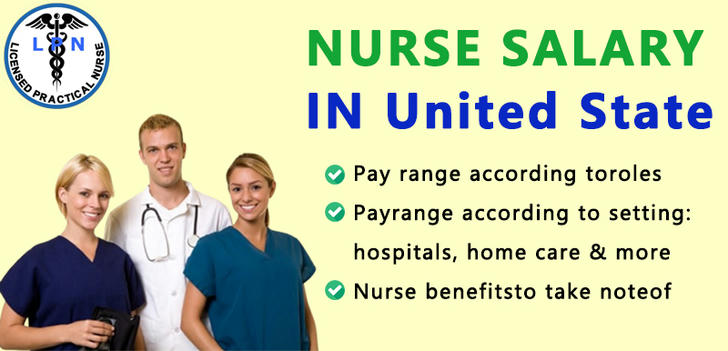LPN Certification Guide: How to Quickly Become a Licensed Practical Nurse and Start a High-Paying Career!
Are you looking for a stable, high-paying job in the healthcare industry? Becoming a Licensed Practical Nurse (LPN) is one of the fastest ways to enter the medical field. With short training programs, competitive salaries, and strong job demand, LPN certification is a great choice for career changers, recent graduates, and those looking for financial stability.
But how do you get LPN certified quickly? What are the costs, salary expectations, and best career paths? This guide will walk you through everything you need to know to become an LPN fast and start earning a great salary.

Step 1: Understanding LPN Certification Requirements
Before you enroll in an LPN program, make sure you meet these basic requirements:
✅ Education: You need a high school diploma or GED.
✅ Training Hours: Most states require 12-18 months of coursework and clinical practice.
✅ Background Check & Health Requirements:
No criminal record (some states require fingerprinting).
Up-to-date vaccinations (hepatitis B, MMR, TB test, etc.).
💡 Pro Tip: Each state has different nursing board requirements. Visit the National Council of State Boards of Nursing (NCSBN) to check your state's specific rules.
Step 2: How to Get LPN Certified Quickly
1. Choose the Right LPN Program
Finding the right LPN program is crucial for a fast and cost-effective path to certification. Here are the best options:
🏫 Community Colleges & Vocational Schools
Lower tuition fees
Hands-on clinical experience
🌐 Online LPN Programs
More flexible for working professionals
Clinical training still required in person
💰 Tuition & Financial Aid: LPN programs cost between $10,000-$30,000, but you can apply for FAFSA, scholarships, and nursing student loans to lower costs.
2. Pass the NCLEX-PN Exam
After completing your LPN training, you must pass the NCLEX-PN exam to become licensed. The test covers:
Fundamentals of Nursing (patient care, basic anatomy)
Nursing Procedures (how to create a care plan)
Medication Administration (dosage calculations, safe drug handling)
💡 Top Study Tips:
✅ Use NCLEX prep apps (like UWorld, Kaplan, and NCLEX-RN)
✅ Study at least 2 hours daily for 4-6 weeks
✅ Focus on nursing ethics & case studies
3. Apply for Your LPN License
Once you pass the exam, you must apply for an LPN license in your state. You’ll need:
📌 NCLEX-PN results
📌 LPN course completion certificate
📌 Background check & application fees
💡 Fast-Track Tip: Some states offer temporary LPN licenses, allowing you to work while waiting for your official certification! Visit NCSBN official website to view the specific process.

Step 3: LPN Job Opportunities & Salary Expectations
1. Where Do LPNs Work?
The demand for LPNs is skyrocketing in various healthcare settings, including:
🏥 Hospitals (ER, surgery, ICU)
🏡 Home Healthcare (caring for elderly or disabled patients)
🏛 Nursing Homes & Clinics (assisting with routine medical care)
💡 Best Places for New LPNs to Get Hired:
Nursing homes & long-term care facilities (hire LPNs with no experience)
Hospitals & outpatient clinics (some positions require 1-2 years of experience)
2. LPN Salary Breakdown
LPN salaries vary based on location, experience, and work setting.
📊 Average LPN Salary in the U.S.: $50,000 - $65,000 per year
📈 Top-Paying States for LPNs (2024 data):
California – $68,000
Alaska – $67,000
New York – $64,000
💡 Factors That Increase Your LPN Salary:
✅ More experience (5+ years can boost your salary to $75,000+)
✅ Specialized certifications (IV therapy, wound care)
Step 4: Career Growth – How to Advance from LPN to RN
1. How to Become an RN from LPN
Many LPNs upgrade their careers by becoming Registered Nurses (RN). Here’s how:
🎓 LPN-to-RN Bridge Programs
Duration: 12-24 months
Salary increase: LPN → RN raises annual pay by $20,000-$30,000
Online & evening programs available for working LPNs
2. Other Career Advancement Options
LPNs can also specialize in higher-paying nursing fields:
👶 Pediatric Nursing (working with children)
👴 Geriatric Nursing (elderly patient care)
🏥 Nurse Administration (management roles)
💡 Taking additional certifications and training can help you transition into higher-paying jobs!
Final Thoughts: Is LPN the Right Career for You?
If you’re looking for a quick way to enter the healthcare industry, LPN certification is one of the best options. It provides:
✅ Fast training (12-18 months)
✅ High demand for LPNs across the U.S.
✅ Strong salary potential with room for career growth
🚀 Ready to start your journey? Find an LPN program near you today and take the first step toward your new career!
